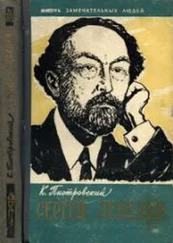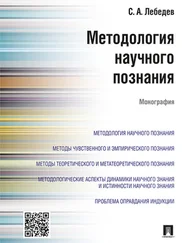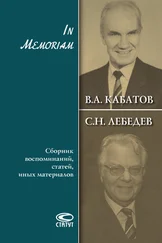Сергей Лебедев - Untraceable
Здесь есть возможность читать онлайн «Сергей Лебедев - Untraceable» весь текст электронной книги совершенно бесплатно (целиком полную версию без сокращений). В некоторых случаях можно слушать аудио, скачать через торрент в формате fb2 и присутствует краткое содержание. Город: New York, Год выпуска: 2021, ISBN: 2021, Издательство: New Vessel Press, Жанр: Современная проза, на английском языке. Описание произведения, (предисловие) а так же отзывы посетителей доступны на портале библиотеки ЛибКат.
- Название:Untraceable
- Автор:
- Издательство:New Vessel Press
- Жанр:
- Год:2021
- Город:New York
- ISBN:978-1-939931-90-0
- Рейтинг книги:3 / 5. Голосов: 1
-
Избранное:Добавить в избранное
- Отзывы:
-
Ваша оценка:
- 60
- 1
- 2
- 3
- 4
- 5
Untraceable: краткое содержание, описание и аннотация
Предлагаем к чтению аннотацию, описание, краткое содержание или предисловие (зависит от того, что написал сам автор книги «Untraceable»). Если вы не нашли необходимую информацию о книге — напишите в комментариях, мы постараемся отыскать её.
Untraceable — читать онлайн бесплатно полную книгу (весь текст) целиком
Ниже представлен текст книги, разбитый по страницам. Система сохранения места последней прочитанной страницы, позволяет с удобством читать онлайн бесплатно книгу «Untraceable», без необходимости каждый раз заново искать на чём Вы остановились. Поставьте закладку, и сможете в любой момент перейти на страницу, на которой закончили чтение.
Интервал:
Закладка:
He took off his coat and lit the fire. Twilight was falling rapidly. Darkness came quickly in the valley, as if the hills, trees, and grasses radiated it. He looked out the window. A plane flew above the dimmed and darkened clouds. Its feathery trail was still reddish yellow in the light. Splitting wood the old way for kindling, Kalitin thought about the plane and the people in it. Where was it going, was the captain competent, how old was the plane?
Kalitin was ready to think about anything at all, do whatever, split kindling, haul firewood—anything to put off the moment when he would be home for good, and the thought of death would return with new, almost overwhelming force; it would go on the attack.
He knew he was in for a sleepless night. A long night of fear and memory. He wanted flames in the fireplace, the humming updraft in the chimney, and the sweet smoke of apple logs, so hard they made a ringing sound, unyielding to fire.
CHAPTER 10
Standing in line at passport control, Shershnev felt neither anger nor impatience, even though things were dragging out; forty minutes wasted. When he started an assignment, he always thought he had tons of time. No matter the delays, whatever the obstacles, he would still be a step or two ahead of the subject.
They had chosen an entry point in a country that did not have its own strong counterintelligence. He and his partner were to go through control with the second dozen passengers from their flight: the first dozen received the most attention.
But first they had to change the broken boarding stairs. Then the bus circled the airport for a long time. When they were released into the arrivals hall, there were hundreds of passengers from flights that had arrived after them.
The border guards were in no hurry. There were only two counters for non-EU citizens. The bored guard in the third line for citizens kept chasing away people with the wrong passport. Asian passengers with duffel bags made a commotion, and the caterpillar line barely moved. But Shershnev stood calmly, having to rebuke his partner a few times with a frown for giving a woman in a hijab dirty looks.
Shershnev thought about the photographs taken by the surveillance people. The agents were sent from the embassy of a neighboring country which had done away with borders within the EU. They came and reported that they had done a clean job, no one noticed them, no counterintelligence activity had been noted, there were no bodyguards, the risk was minimal. The subject had not been seen. But inside the house—the security system was standard and easy to turn off—they found letters from the hospital. The subject was being examined and should be home soon.
He pictured the photographs taken by drone. The house on the edge of the forest. A deserted road. An ideal place, an easy place. No neighbors, no one would see, no one would find out. A hermit hidden in a secluded corner, setting his own trap.
The line had turned into a gypsy camp that seemed to have been there for years. The habit of a migrant life, of long, pointless waiting in crowded corridors in front of shut doors where your fate is being decided—that habit shaped people who had been so distinct forty minutes ago into a faceless conglomeration, an irrational but sensitive organism.
A rustle of movement, whispers—two yawning, grumpy border guards came and opened two more booths. The human porridge separated, with part flowing in their direction, stopping at the yellow line to wait their turn. Shershnev, who had noticed the men coming before anyone else, did not change his place. He did not like altering his decisions. A service psychologist called it passivity. But Shershnev knew the psychologist was wrong. He had always lacked that bit of agility, plain old luck, that lets people catch a train at the last moment and guess which line will move faster than others. If he started scurrying about, it made things worse, and the new line did not move at all and the train left from a different platform.
So he waited.
In a half hour, the crowd began to dissipate. A young couple went to the left booth, a stylishly dressed elderly man with a briefcase went to the right. Grebenyuk and he were next.
Shershnev had thought the old man and the couple would go through quickly—they usually don’t hassle people like that. But the couple didn’t have printouts of their return tickets, and the guard frowned and demanded all their hotel reservations. The man was also stuck, pointing at some paper in a plastic cover, instantly losing his glossy countenance and turning into an uncertain, intimidated supplicant.
The border guards were talking to one another. The crowd was shoving Shershnev. The sharp corner of a suitcase hit his anklebone hard. For a second, he thought this was a set up. Someone would grab him from behind, twisting his arm, while the idiot with the suitcase would pull out an automatic pistol. He suppressed the bad feeling.
Click , click , click —the magical sound of passports being stamped.
The metal doors opened. The old man left right away, and Grebenyuk took his place. The couple was holding things up. The girl was stuffing papers back in her bag, she dropped a file and pages flew out. She crouched to pick them up. Shershnev waited with discipline. Even though he was supposed to cross the border together with his partner.
Airport workers in bright vests pushed two wheelchairs, bypassing the line. Young black boys, just skin and bones, covered with blankets, were holding piles of messy papers in their laps.
Shershnev took a step forward. But the guard raised his eyebrows and motioned him to stop.
Grebenyuk left. The boys were wheeled to the booths.
The nearer boy had a clumsy, perhaps homemade, prosthesis sticking out of his worn pant leg. It was too small: the boy had grown, but not his artificial leg. “A land mine,” thought Shershnev. “Could have been one of ours. Where are they from? Somalia? Libya? Angola? Sudan?” He was sorry the mine had gone off at such a bad time. Now the explosion that took place many years ago on a different continent was holding him up. The other foot was wearing a brand-new sneaker, limp, with a puffy running sole. Just like the ones Maxim was wearing the day they played paintball. A day so near and so far.
The agent left his booth, examined the boy, and started leafing through the papers with the boy’s escort. Shershnev was the calmest person in the airport. The two men kept talking. The boy sat there, aloof, exhausted by the long flight. At last, the guard stamped a paper. The man in the vest pushed the wheelchair through. The officer waved to Shershnev: Come over.
Shershnev was prepared to give him his cover story. He had a new passport with a fresh visa. His first entry. Questions were possible, almost inevitable. But the guard, as if in apology—or perhaps as a reward for the passenger’s patience—ran the passport through the scanner, flipped through the pages and stamped it neatly, in the corner.
The door opened, and Shershnev stepped into the world he had left decades ago, when he went back home to go to military school.
His father was commander of a communications platoon. Shershnev grew up in an army garrison that had taken over the old nineteenth-century barracks of a cavalry regiment that died out in World War I. He had hoped to return there to join his mother and father after his studies, to be in a special army group in the GDR. He would serve in intelligence, face-to-face with the enemy, on the farthest edge, where you could see the white column, crowned with a faceted cupola, of the American listening station on Devil Mountain.
It turned out differently. His parents came to him. The garrison left its barracks. They brought tanks, rockets, and other supplies on trains. The army, without suffering a defeat, was nevertheless retreating to the East.
Читать дальшеИнтервал:
Закладка:
Похожие книги на «Untraceable»
Представляем Вашему вниманию похожие книги на «Untraceable» списком для выбора. Мы отобрали схожую по названию и смыслу литературу в надежде предоставить читателям больше вариантов отыскать новые, интересные, ещё непрочитанные произведения.
Обсуждение, отзывы о книге «Untraceable» и просто собственные мнения читателей. Оставьте ваши комментарии, напишите, что Вы думаете о произведении, его смысле или главных героях. Укажите что конкретно понравилось, а что нет, и почему Вы так считаете.












